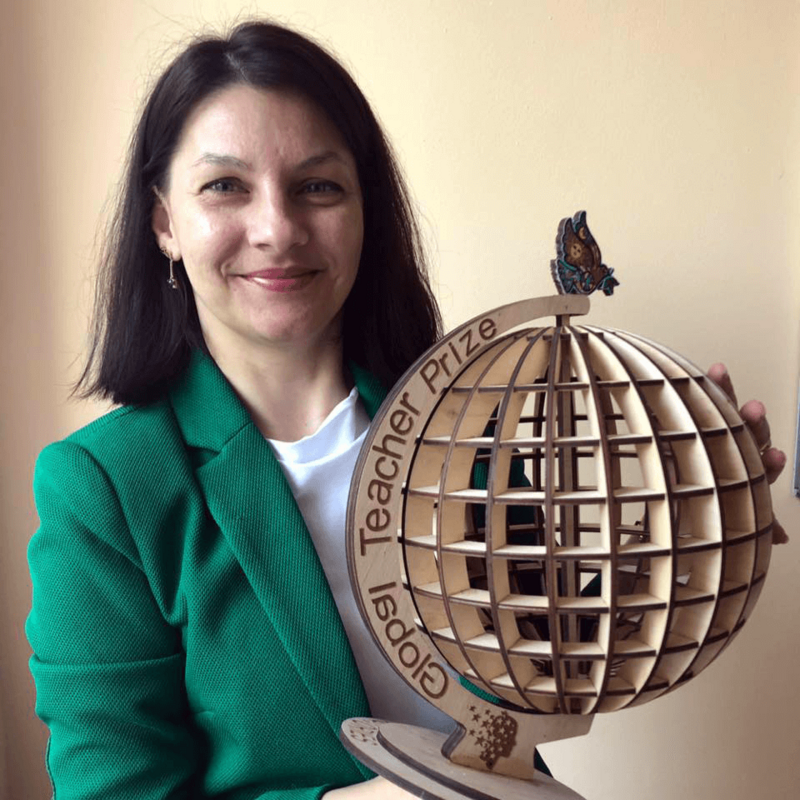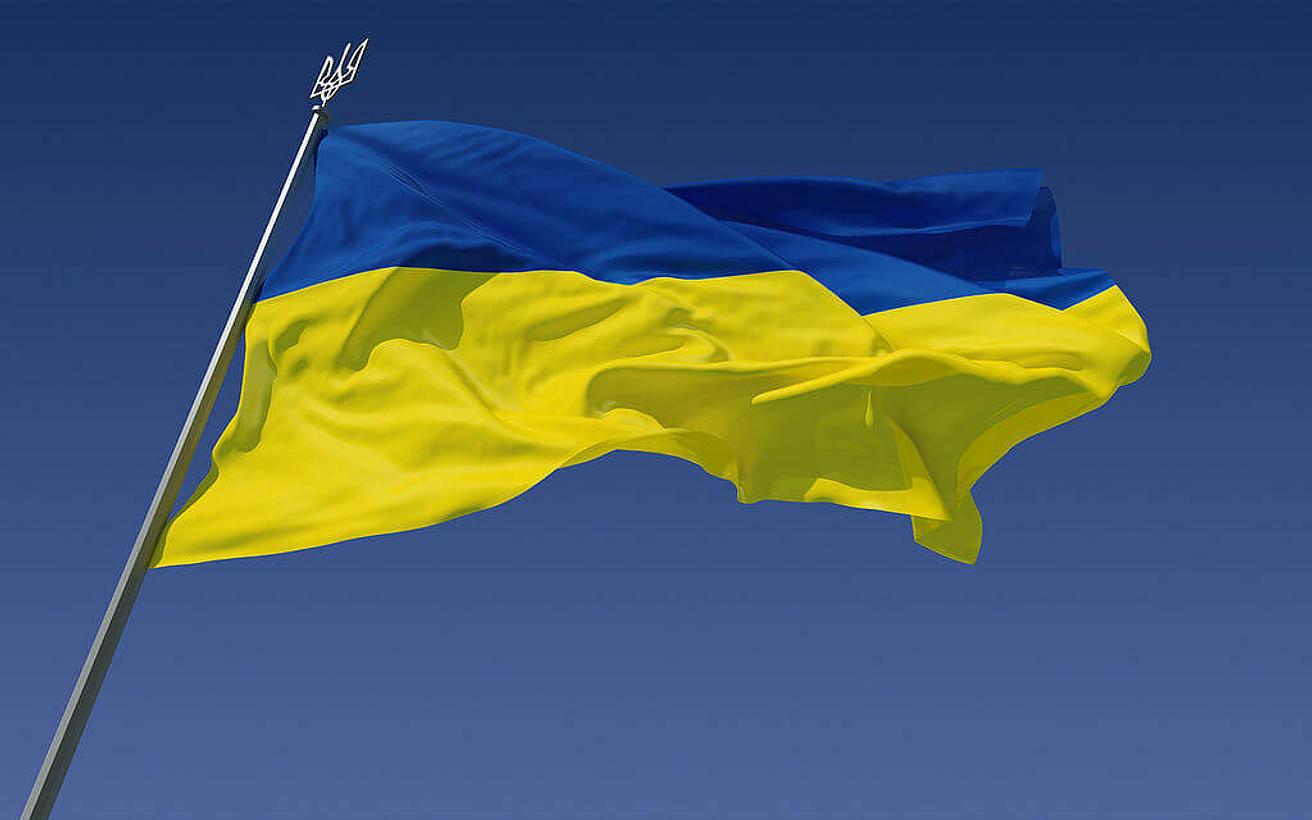Russia’s unprovoked war against Ukraine has a devastating impact, and not least to its almost 4 million school children. Schools in Ukraine have been closed and many destroyed. We reached out to one of our four HundrED Ambassadors in Ukraine, to find out what local educators need the most during this terrible time.
Below is an exchange with Anna Dudich, English teacher and a vice principal at Taras Shevchenko Himnazia in Kropyvnytskyi, Ukraine.

HundrED: Hi Anna, we are following with a heavy heart what is happening in Ukraine at the moment. We are hoping that you, your family and loved ones are safe?
Anna: Most Russian forces are trying to hit Kyiv now and emergency sirens are blasting all around the country. I’m in the city of Kropyvnytskyi, at the centre of the country, away from the borders, so it’s much safer here than in the rest of Ukraine. Though we also had to pack emergency kits and be ready for this night because there is a threat of bombing tonight. Big cities are in an awful situation now. Heavy battles are everywhere. Civilians are hiding in metro stations and underground parking lots.
HundrED: How are you and your colleagues taking care of education at the moment - if at all?
Anna: The first two days (24 and 25 February) we organised distance teaching. Kids and teachers were at home and learning was happening over Zoom and other video conferencing tools. Then we noticed that lots of students moved with their families to safer places in our country and abroad, and the Ministry of Education made a decision to announce school holidays all over Ukraine for all educational institutions, both schools and universities. So far holidays will last until 12 March, but the final decision will be made according to the situation. So all students are at home now, no education is happening because it is literally impossible and would be useless. Some schools provide club meetings on Zoom for those kids who can join: drawing or handcraft masterclasses, for example. My school has been providing such Zoom meetings and I know that 2–3 kids join every day. It’s a kind of relaxation for them. But it all depends on the situation. Yesterday it was possible, because we had an air alert only in the evening. Today it is totally impossible because we are staying in the bomb shelter practically all day. There are fights above our town and tank battles in the outskirts. I’m writing to you from the shelter now.
HundrED: We wish you and your countrymen strength from the bottom of our hearts to resist the invasion attempt.
Anna: Thank you. Informing society is very important. I hope that in future we will manage to raise a generation that will be able to negotiate differences peacefully and choose leaders responsibly. Currently the situation is really serious. No learning can happen in shelters. I saw some pictures on the internet of children sitting in the shelter and a teacher conducting a lesson. The captions were wrong, I think. What was probably happening there is that someone volunteered to read a book to children while they were waiting for air sirens to stop. People are spending a lot of time in the shelters so naturally they are trying to organise better conditions for kids as well. In my shelter there is even a swing. It really looks unreal.
HundrED: Is there anything the global community of educators could be doing at the moment?
Anna: The best way to help is to spread the word on social media about this horrible situation in Ukraine. We just want to be a part of the democratic world and united Europe.
Teachers in Ukraine are thinking now what to do with education in the near future. Children have the right for education but it’s impossible to provide schooling as we used to think about it in normal life. Even distance learning is hardly possible because internet connection is not reliable. 211 school buildings have been destroyed since the beginning of war, and our students are scattered in western Ukraine and abroad. Those who moved to safer places took only the most important things and left textbooks and gadgets behind. We are thinking hard, but we don’t know what to do in this situation. We would appreciate ideas and information from educators who have experience of organising schooling in war time.
HundrED: Thank you for letting us know your current situation. We’re so relieved to hear that you are safe at the moment.
HundrED will continue to stay in touch with HundrED ambassadors and innovators in Ukraine, and provide them with information on how to organise education in crisis. If you wish to help, you can also donate cash or supplies to vetted organisations. Currently funds are needed for basic services including water and sanitation, health care, schooling and learning, psychosocial support, and emergency cash assistance for up to 7.5 million children.
Situation being dire and urgent, HundrED recommends that you give money to charities with a track record in Ukraine and neighbouring countries, such as:
UNICEF is a UN agency that protects children and is in a good position to provide immediate relief. Because the agency has already built local relationships and infrastructure, it is likely to be more adept at operating in current challenging circumstances.
Razom Ukraine is an organisation that leads a variety of cultural and democratisation initiatives. They have been quick to respond to the current crisis by providing critical medical supplies from Poland to Ukraine, organising rallies around the world and amplifying the voices of Ukrainians.
Fundajca Ocalenie is a Polish organisation helping refugees from Ukraine on the border of Poland. The charity keeps monitoring the situation, providing humanitarian and legal aid to refugees, and informing the public about the situation and advocating for an end to this humanitarian crisis.
The Kyiv Independent is a Ukraine-based, independent English-language media bringing news on the ground to global audiences.
Voices of Children provides non-stop assistance to affected children and families from all over the Ukraine, providing emergency psychological assistance.


